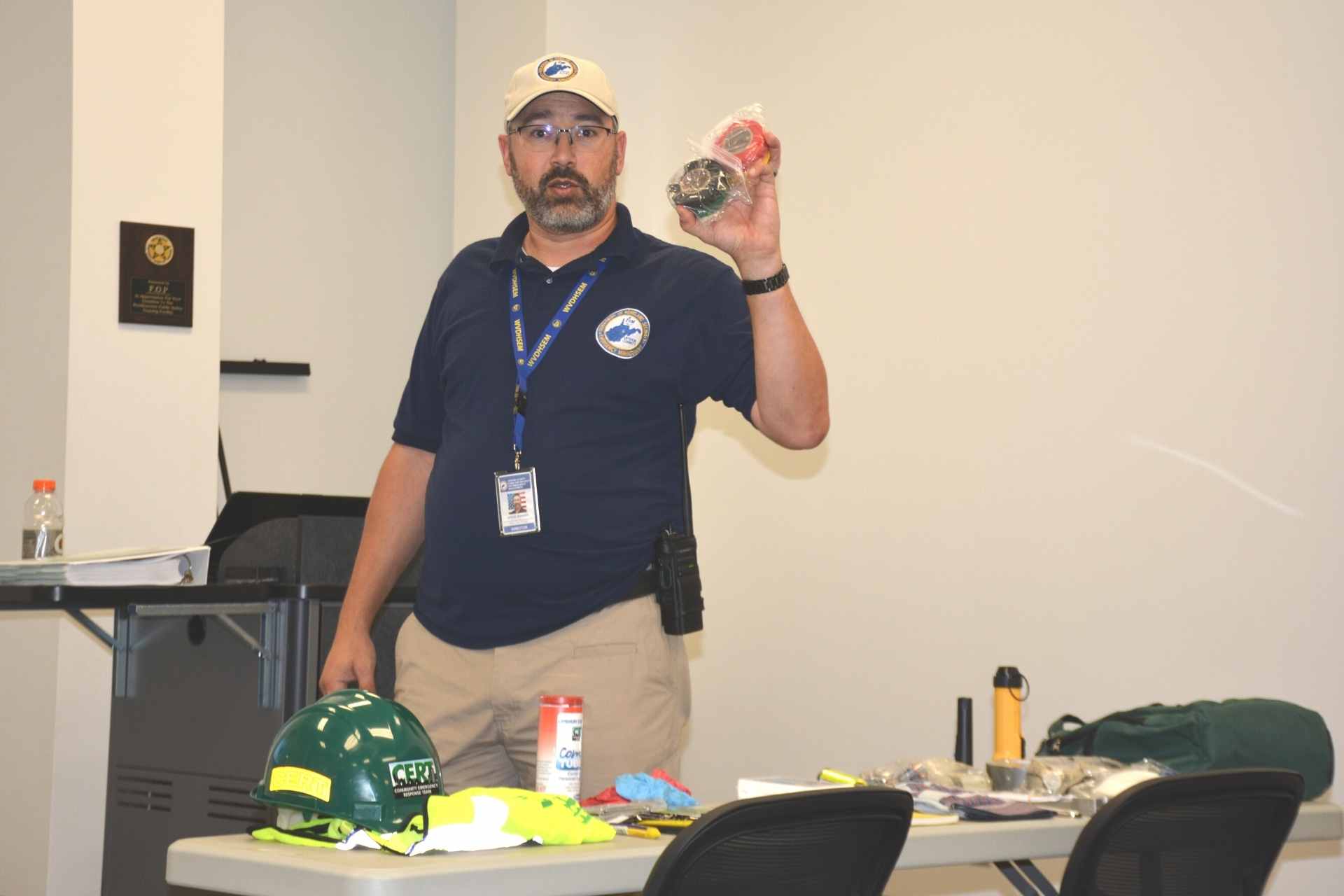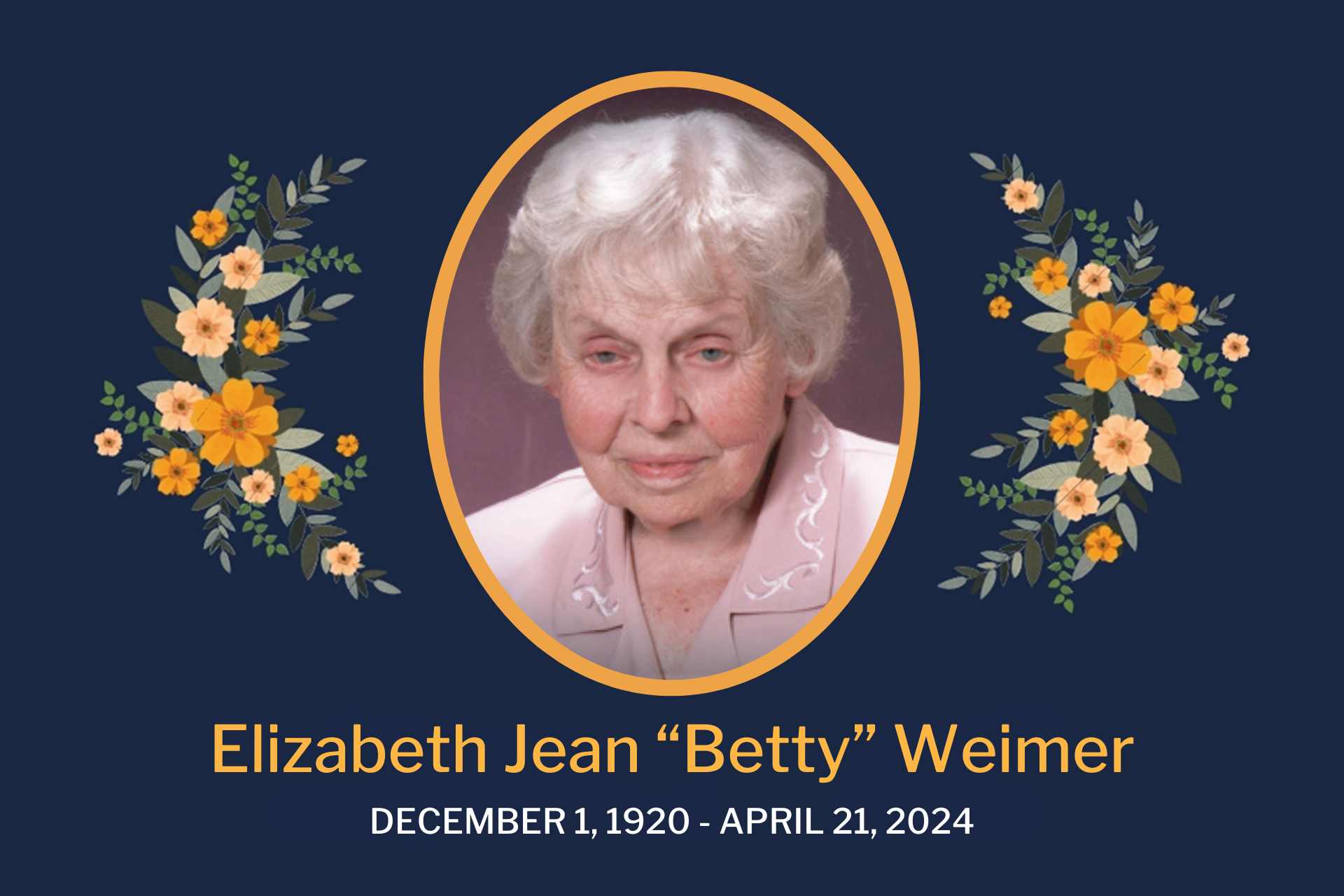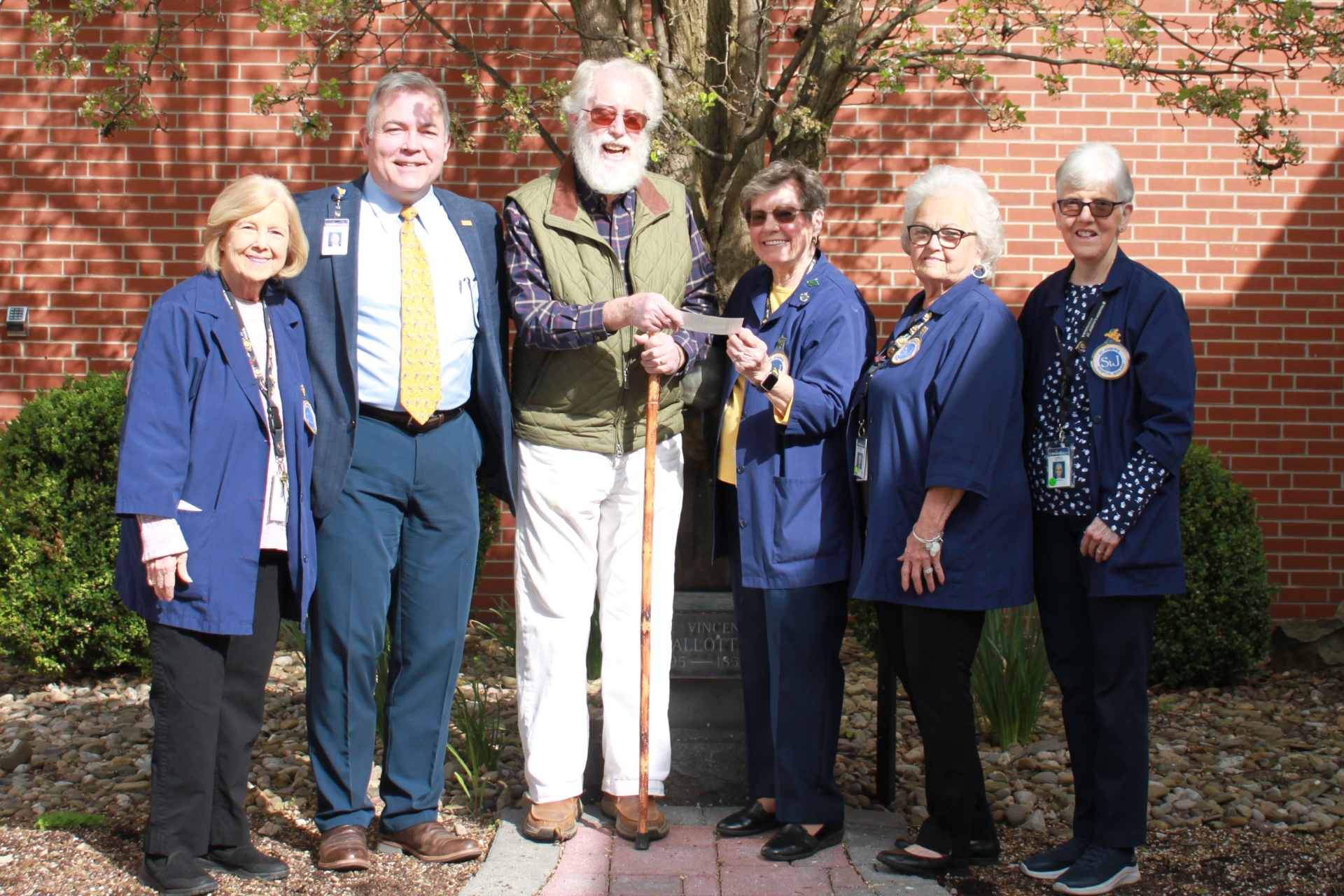BUCKHANNON – When catastrophe strikes – think flash flooding or a devastating fire on Main Street – communities across the U.S., and especially rural communities like Upshur County, count on local volunteers to step in until enough professional first responders arrive.
To that end, the Upshur County Department of Homeland Security and Emergency Management is working to revive the county’s Community Emergency Response Team, a nationally supported program that teaches local volunteers how to prepare themselves, their families and neighbors for hazards that could impact their community.
Right now, Upshur DHSEM Director Steve Wykoff and Upshur DHSEM Deputy Director Derek Long are recruiting residents who want to be trained in disaster preparedness skills so they can respond when needed. So, whether you’ve heard of CERT before or not, here’s five things to know about what it is and how it works.
What CERT is
The Upshur DHSEM hosted an informational meeting for prospective CERT members Oct. 18 at the city’s Public Safety Complex on Florida Street where Wykoff laid out exactly what CERT is and how it originated. CERT operates via the DHSEM under the umbrella of the Federal Emergency Management Agency and trains regular people in a wide range of skills, including basic search-and-rescue techniques, disaster medical operations, fire safety, utility controls, traffic and crowd management and more.
“The CERT program recognizes that in a disaster situation or an MCI, which is a multi-casualty incident, professional rescuers are going to be overtaxed and sometimes, it’s going to be a while before they get to you – not to mention if there are roads closed, impassable roadways and whatnot – so we’re empowering the public with this training to take care of themselves, their families and their neighbors until professional help arrives,” Wykoff explained. “We’re not replacing EMTs, we’re not replacing paramedics, we’re not replacing firefighters, we’re just giving you the tools and training that you need to protect your family and take care of your neighbors until those professional rescuers get there.”
Wykoff explained an MCI, or multi-casualty incident, doesn’t mean necessarily mean the occurrence of multiple deaths but a situation in which there are multiple injuries, a large incident or several incidents taking place simultaneously.
“To us, anything that taxes your normal daily emergency services’ activities is considered an MCI or multi-casualty incident,” he said.
How CERT developed
CERT began operating under the auspices of FEMA in 1994 when it was rolled out across the U.S., but the nationwide initiative has its roots in the Los Angeles Fire Department, which began studying worldwide disasters like earthquakes in which community members stepped in to assist professional emergency responders.
“The professional responders were overtaxed, there was too much going on for them to respond to everything, so your good Samaritans that were out there, they went and helped their friends and they helped their neighbors and while they were able to save about 700 lives in that Mexico quake, they lost about 100 civilian responders, and when [the Los Angeles Fire Department] went back and researched it and figured out why they lost that many responders – it was due to a lack of training.”
For instance, civilian responders didn’t know how to efficiently check a building to ensure its safety or utilize a buddy system. The LAFD determined that if regular volunteers underwent training, not only would they be able to save more lives, but they would also be more likely to stay safe.
FEMA took over the pilot program and rolled it out across the country in 1994.
“Once the professional rescuers show up, the CERT members have the training to support them,” Wykoff said. “If [CERT members] are running a triage area and we’re doing basic medical treatments, that frees up an EMT or a paramedic to take care of somebody that needs that advanced life support or more help.”
The history of CERT in Upshur County
CERT started up in Upshur County in 2004.
“At one point in time, we had over 200 people on our roster that were trained and active within the CERT organization, including two to three Board of Education employees at each school that were trained in CERT and how to respond,” Wykoff said.
About six years ago, however, membership dramatically dropped off, and Wykoff and Long are now determined to change that.
“Approximately six years ago, which was pre-COVID, we started experiencing a very rapid and drastic membership decline,” Wykoff said. “I’m not sure exactly what caused that; we think there were some administrative issues and whatnot but as the CERT program is so integral in multi-casualty incident response and supporting our professional responders, we want to make sure we get this program back up and running.”
“For the most part, I don’t think we’ve got more than 20 people on the roster now, so that is only a tenth of what we had previously in CERT’s heyday,” he added.
There’s something for everyone in CERT
The Upshur DHSEM wants to establish four basic CERT units, including a Basic CERT Response Team, a Traffic and Crowd Management Team, an Animal Response Team and an Amateur Radio Team. Eventually, the department would also like to add on two additional units – a Teen CERT and a Campus CERT at West Virginia Wesleyan College.
Already this summer DHSEM held an amateur radio technician certification class to hopefully build that unit.
“[People who use amateur radios] have a very specific skill set that can be very helpful with communications in times of disaster,” Wykoff explained.
Long, an amateur radio hobbyist, said there are at least 300 people with amateur radio, i.e., ham radio, licenses in the area. When more advanced communications systems fail or cell towers go down in times of disaster, amateur radio is a constant.
“The thing about amateur radio that has stayed consistent over the years is that its simplistic approach has remained constant in the hobby, and [computerized systems] potentially have multiple points of failure,” Long said, “but amateur radio, ham radio is very simple. It’s very pure. It’s a very rewarding hobby, and it’s pretty amazing what you can do with a wire and a simple radio.”
One of the things you can do is clear up communication channels for professional rescuers, Long said.
Another unit they’d like to form, the Animal Response Team, would be charged with setting up pet shelters for the furry friends people don’t want to leave behind.
“Human shelters cannot take pets due to health regulations and liability, so we know that people are not going to go to the shelters if they can’t take their animals, so what we’re going to do is set up an animal shelter right next to the human shelter, and we’re going to be able to house 40-50 animals in that shelter,” Wykoff said. “We’ve got that equipment right now; we’ve got cages, water bowls, food bowls. Like with many aspects of what we do, we’ve got the equipment; we just need the people to run it.”
And no matter what your skill set is, DHSEM can find a task for you.
“We invite anyone to come in and help us and we can find a job for just about anyone,” Wykoff said. “We could put you ‘boots-on-the-ground’ frontline, we could put you in the EOC (Emergency Operations Center) doing administrative tasks, we could use runners going back and forth, and we could use people tracking inventory. Depending on what your skill set is we can find a niche for you.”
How to get started
Contact Wykoff or Long at the DHSEM office at 304-472-4983 or by email at scwykoff@upshurcounty.org or dvlong@upshurcounty.org. You can also submit this contact information form to express your interest in joining CERT and more resources are available on the county’s website under the DHSEM tab.
Online training courses are also available at training.fema.gov/is, and most courses are free. Wykoff is also certified to teach a handful of courses locally, but at least 10 people must be enrolled.
One bonus? When you become a CERT member, you receive a free backpack filled with gear, including a flashlight/batteries, leather and latex gloves, hard hat, goggles, vest, mask, First Aid kit, utility shutoff tool, multi-tool and more.






















